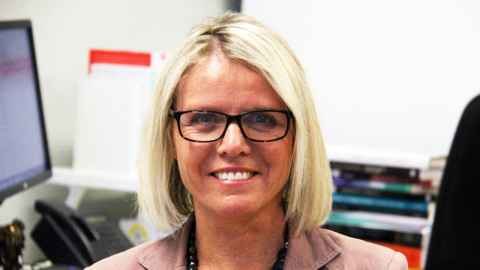Sex, gender, power
4 September 2018
The University of Auckland’s first female Professor of Politics and International Relations will give her inaugural lecture at the University on the eve of the 125th anniversary of women’s suffrage.

Professor Jennifer Curtin’s lecture “Sex, Gender and Power in New Zealand: 125 years of women’s politics” will look at how political institutions and the organisation of political life have shaped women’s lives, and how women as agents of change have worked to reshape those institutions.
“There has been an agile feminist activism, working from within and outside formal politics,” she says, “and feminist claims continue to disrupt and disturb the prevailing politics of advantage, although not without resistance.”
Professor Curtin will draw on research she has done over 25 years to trace the different strategies women have employed to advance their claims for gender equality in political, economic and social life.
“Kate Sheppard is the most recognisable champion of women’s suffrage, but there were many other women, Māori and Pākehā, who worked to achieve rights for women in the lead up to getting the vote in 1893. We find them in the dress reform movement, and among those who were demanding increased access to physical sport, including rugby union. Our first women’s rugby team was being put together as early as 1891, despite being scorned upon as unwomanly.
“There was also the Kotahitanga movement, with women like Meri Mangakahia, and the work of early trade unionists such as Harriet Morison of the Tailoresses Union, who worked with members to provide over a third of the signatures on the 1891 petition for women’s suffrage, and again in 1892.”
It is 125 years since women won the right to vote in Aotearoa-New Zealand but it was 1919 before the Women’s Parliamentary Rights Act enabled women to stand for parliament and 1933 before the first woman was elected. Women weren’t eligible for appointment to the Legislative Council until 1941.
“Today we are viewed as global leaders on women’s suffrage but we are yet to witness parity in political representation.”
Political careers remain gendered, says Professor Curtin. The proportion of women in Cabinet, for example, has only reached a third in 1999 but yet to go beyond that, and her research on three Westminster countries shows that women are more likely to be given lower ranked portfolios, and be promoted within Cabinet at a slower rate than their male counterparts.
She says women MPs, Cabinet ministers, and party leaders, are significant to advancing gender equality policies. “My research, and that of other gender politics scholars overseas demonstrates that women politicians, from all sides of politics, are more likely than their male counterparts, to make claims for women and families.
“So the suffragists were right to ensure that their demand for political rights extended beyond the right to vote.”
Sex, Gender and Power in New Zealand: 125 years of women’s politics
18 September, 5.30pm Library Basement Building 109, Room B10. All welcome.
Media queries
Tess Redgrave | Media Adviser
Tel: 09 923 7383
Mob: 027 562 5868
Email: t.redgrave@auckland.ac.nz